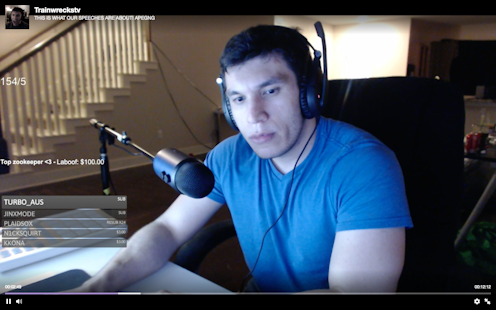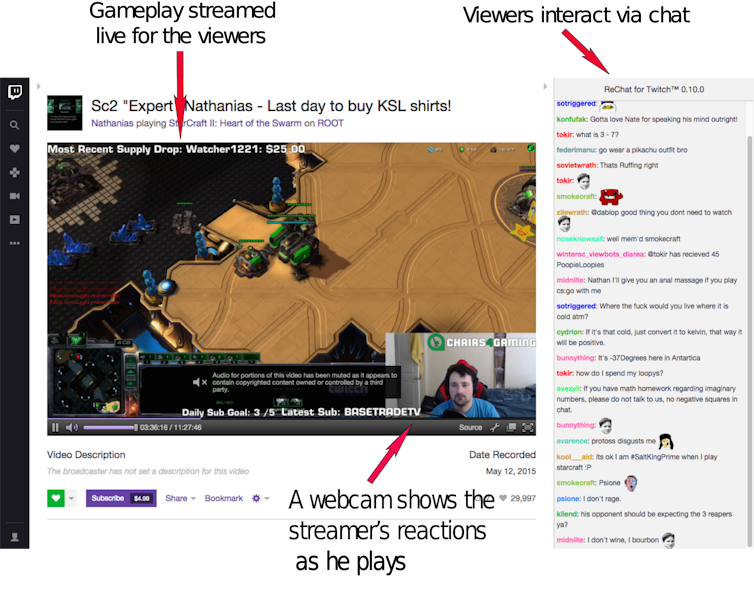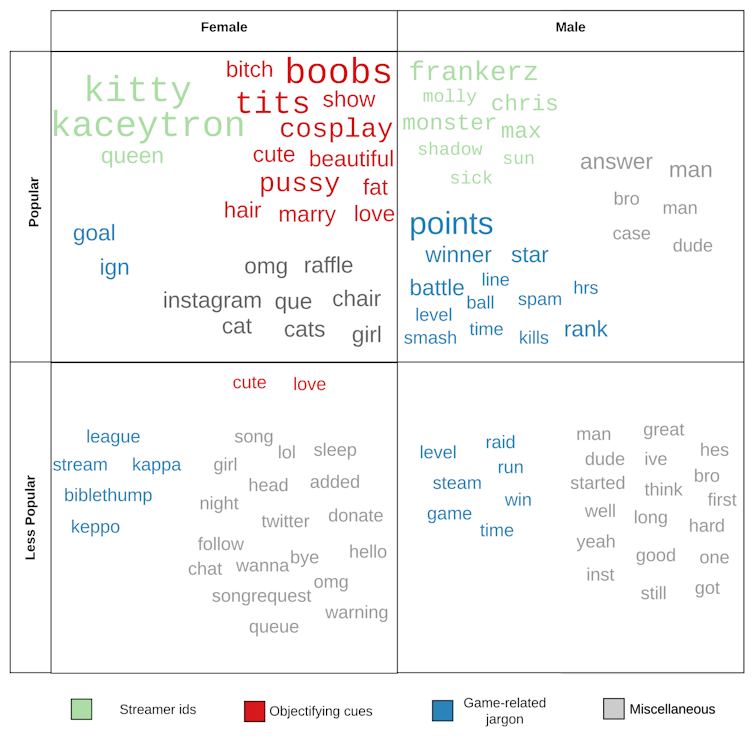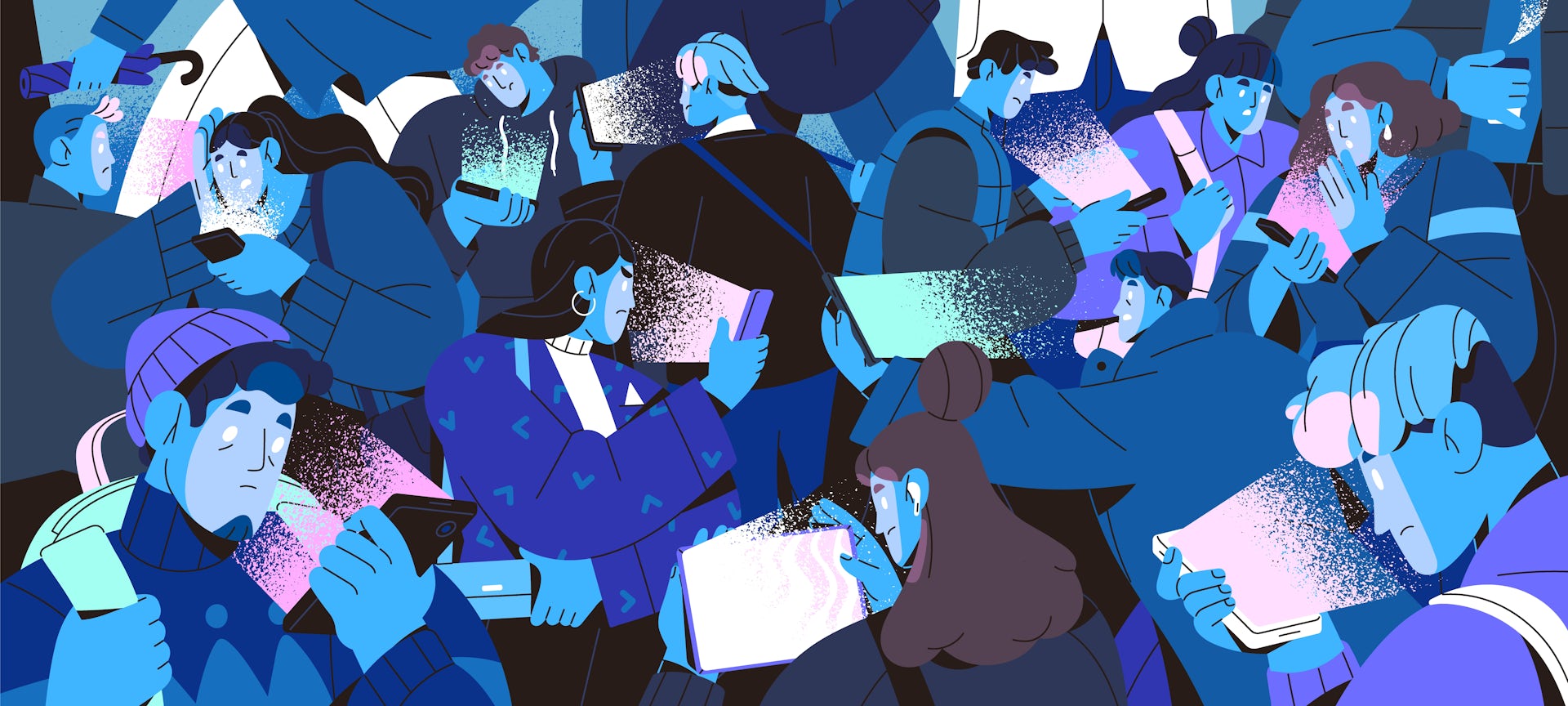Can online gaming ditch its sexist ways?
Many online communities have developed toxic social norms, including sexist tendencies, that they will need to address as more members join in.

A huge online community has developed around the increasingly diverse world of video games. Online streaming systems like Twitch let people watch others play video games in real time, attracting crowds comparable in size to traditional sport events. And women are increasingly finding remarkable success as gamers and as Twitch streamers.
Computational social scientists like me – the band of scholars working at the intersection of society and computing – are attracted to online communities like Twitch because they help us study those social groups and society at large. Of particular interest are the community norms that develop. An internet-wide example is the understanding that typing in all-caps IS THE SAME AS SCREAMING. Individual communities develop their own peculiar jargon and unwritten standards of behavior.
Like other online communities, Twitch has its own culture and norms, of which sexism is sadly a feature. The site’s managers recently suspended the accounts of two well-known streamers after both streamed gender-biased material that violated Twitch’s rules. My own research, together with Supun Nakandala, Norman Su and Yong-Yeol Ahn, has examined the experience female gamers have on Twitch, including whether they are treated similarly to men or commonly identified as different – and even subjected to sexual objectification.
The paradox of online communities
Online, cultural norms present a paradox: The communities they apply to are online, open groups that anyone with an internet connection can join just by creating an account, which is usually free. But it takes time, effort and, especially, acceptance to become a true member. We sought to find out whether these norms involve gender stereotypes and sexism, excluding and mistreating women and girls.
In our research, we focused on Twitch chats, where viewers can comment on a broadcast while watching a video stream. Viewers can chat among themselves, and interact with the streamer. We wanted to see whether chat language involved more objectification when the streamer was a woman.

We analyzed several months’ worth of chat transcripts using several data science tools, including detecting frequent words and expressions, noting how often words were used together or in combination with other markers, and mapping the relations between words. We noticed major distinctions between the language commenters used on the top 100 most popular women-operated streams, and on streams of similar popularity operated by men.
When watching a man stream, viewers typically talk about the game and try to engage with the streamer; game jargon (words like “points,” “winner” and “star”) and user nicknames are among the most important terms. But when watching a woman stream, the tone changes: Game jargon drops, and objectification language increases (words like “cute,” “fat” and “boobs”). The difference is particularly striking when the streamer is popular, and less so when looking at comments on less-popular streamers’ activity.

Toward more open online communities
The trends our research identified suggest that objectification and harassment may be a problem for female streamers who want to become part of the online gaming community. Site owners and managers must face the fact that anyone can join the community: As online gaming becomes a more mainstream activity, some of its social norms – especially those related to gender stereotyping – are being called into question.
Other online communities are also trying to open up to a broader set of participants, but for different reasons. For example, Wikipedia has struggled for several years to attract newcomers and transform them into active contributors, in part because of a male-dominated culture that includes harassment of women.
The big communities like Wikipedia and Twitch – with hundreds of thousands of active users (or more) – are looking for ways technology can help inform these social changes. Twitch recently released a tool called “Automod” that watches for specific keywords and lets streamers identify and filter out their viewers’ trolling, objectifying language and other forms of abuse. Similarly, Wikipedia has been developing machine learning models to detect instances of harassment and incivility in contributors’ discussions, marking them for humans to review for potential disciplinary action.
While these tools look promising, it’s not yet clear how they will affect their communities’ overall well-being. Algorithms may introduce biases that could unfairly target certain groups or classes of users. And abuse detection systems often struggle to keep up with more sophisticated manipulation and abuse techniques.
Moreover, detecting abuse is only a part of the issue. To improve openness and engage new users, these sites also need to create spaces for newcomers to mix with veteran community members. One example is the Wikipedia Teahouse, which emphasizes the word “friendly” in its description of itself as a place for people to learn about “Wikipedia culture.”
The organizations that operate Twitch and Wikipedia are just beginning to wrestle with the results of the online-community paradox. As new users join other sites, those communities’ owners will also need to examine their cultural norms to drive out toxic standards that effectively silence entire groups.
Giovanni Luca Ciampaglia is supported from the Indiana University Network Science Institute and received funding from the Swiss National Science Foundation and the Democracy Fund.
Read These Next
Crowdfunded generosity isn’t taxable – but IRS regulations haven’t kept up with the growth of mutual
Some Americans are discovering that monetary help they received from friends, neighbors or even strangers…
Algorithms that customize marketing to your phone could also influence your views on warfare
AI systems are getting good at optimizing persuasion in commerce. They are also quietly becoming tools…
How transparent policies can protect Florida school libraries amid efforts to ban books
Well-designed school library policies make space for community feedback while preserving intellectual…





